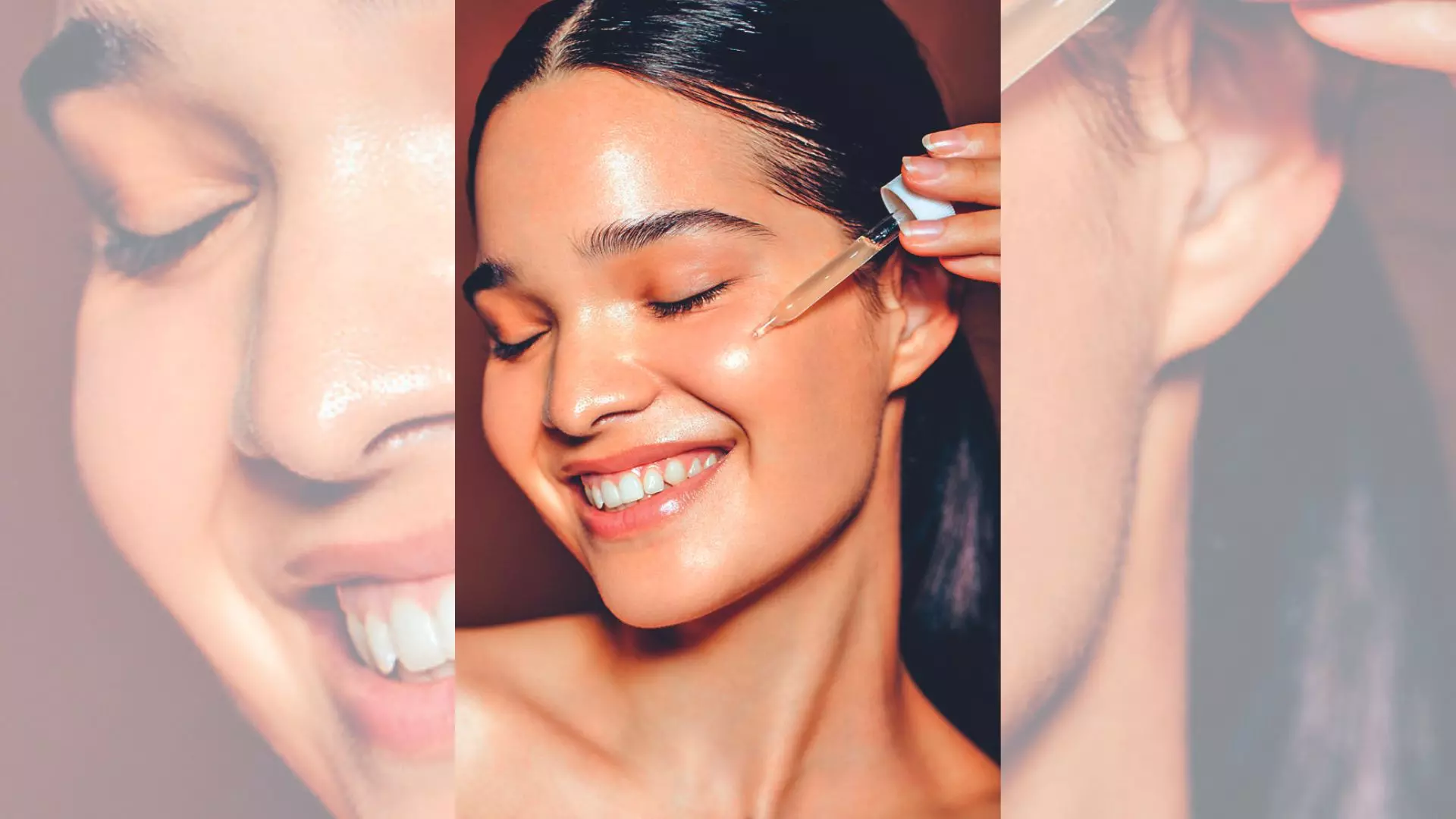Practise ‘Skin-fasting’, it’s beneficial
This term is coined by Mirai Clinical, a Japanese beauty company. The idea is to take a break from all your skincare products for a few days to let the skin go back to its natural condition, allowing it to breathe, heal and reset. It is the opposite of elaborate multi-step skin routines

With so many skincare products, flooding the market, it is easy to want to try everything. Overuse and wrong use of skincare and makeup products, or unknowingly combining certain product with ingredients that conflict can increase sensitivity and damage the skin too. Actress Zareen Khan, who practices skin fasting, says, “Fasting has benefits, whether on skin or body. The more products you apply on the skin, the more harm they can do. Many ways to take care of the skin trend on social media, but minimal use of products is best. Skin fasting for a couple of days is good, as it reduces irritation, and makes the skin fresh. I use a gentle cleanser and a moisturizer every day, and I do not use makeup unless I have a meeting or I am facing the camera. I have sensitive skin. When I experiment with different products, no matter how expensive they are, I get rashes. Your skin needs to be allowed to just breathe sometimes,” she says.
Sonakshi Srivastava, a PR professional in Gurgaon who is in her 20s, loved wearing makeup since she was in high school. “But during Covid, I did not use anything on my skin. That is when I realized the importance of skin fasting. Instead of chemical-based lotions, I started using besan, haldi and milk, which not only healed my skin but brought a glow to it.” She now practices skin fasting every two months. “When following skin fasting, I wash my face and apply just a moisturizer to let my skin heal for two or three days. I do not use any makeup or skincare product during that time.”
A welcome break
Dr Rinky Kapoor, Consultant Dermatologist, Cosmetic Dermatologist and Dermato-Surgeon, The Esthetic Clinics, says, the basic concept of skin fasting is to give your skin a much-needed break to reset and rejuvenate. “Overuse of skin care products with harsh ingredients like parabens (damages skin and causes allergic reactions), sulfates (strips the skin of natural oils), and formaldehyde (easily irritates skin, causing redness) can potentially disrupt the skin’s function and natural barriers. It mostly involves avoiding skincare products like scrubs, exfoliants, toners and serums.”
Skin fasting can be particularly effective for those wanting to reboot their skin and combat problems like acne, pimples, inflammation, and eczema flare-ups, according to the dermatologist. Both men and women with various skin concerns can give it a try.
Go slow
The proper method of skin fasting is to gradually scale down the skincare routine, ultimately stopping all products except water for a set period (e.g., a week). Dr Shifa Yadav, Consultant, Dermatology, Artemis Hospitals, says, “Make sure that you cleanse your face with water and pat dry. Refrain from using harsh products, exfoliants, and makeup during this time. After the fasting period, reintroduce products one by one to identify any sensitivities.”
Cautioning that skin fasting can take time to show benefits, she adds, “try skipping certain things during the nighttime skincare routine, especially if you are using actives like retinol, glycolic, or any AHA or BHA. These can be skipped for a week, but the basic skincare routine involving cleaning, moisturizing, and SPF needs to be followed regularly.”
Skin fasting can allow the skin to naturally regulate its oil production, pH balance and moisture levels. This can lead to improved skin texture, reduced acne, and enhanced skin clarity, adds Dr Yadav, while cautioning that it is essential to consult a dermatologist before starting the process, especially if you have specific skin concerns.
Not a universal answer
Skin fasting developed as a response to overly complicated skincare routines, but it is not suitable for everyone. Its effectiveness varies from person to person depending on skin types and textures. It is important to know your skin type and its needs, and adjust your routine accordingly.
Dermatologist, Venereologist and Dermatosurgeon Dr Agni Bose says, “The skin is the largest organ of the body. Good skin care is not only about what we put outside our bodies but what we put inside too. Skin fasting cannot have any side-effects, since that is our bodies’ natural state. Our bodies and skin work fine even without skincare products.”
However, Dr Bose emphasises that “patients with certain dermatological conditions and clinical dermatological diseases should not skip moisturizer and sunscreen since they have a medicinal purpose.”
For healthier skin it is vital to know your skin's unique needs, follow a balanced skincare routine, and be mindful of the products used.
Caution:
Don’t undertake skin fasting during extreme weather or sun exposure.
Don’t discontinue using the sunscreen. Without proper sunscreen, skin fasting can lead to sunburn, premature aging, etc.
Don’t practice it if you have severe acne, eczema, rosacea, psoriasis or hives.
Overuse of skin care products with harsh ingredients like parabens, sulfates, and can potentially disrupt the skin’s function and natural barriers.” — Dr rinky kapoor, consultant dermatologist and dermato-surgeon at The Esthetic Clinics.
Make sure that you cleanse your face with water and pat dry. Refrain from using harsh products, exfoliants, and makeup during this time. After the fasting period, reintroduce products one by one to identify any sensitivities.” — Dr Shifa yadav, consultant dermatologist at Artemis Hospitals.
Skin cells and tissues regenerate. Sebum, which prevents dryness and slows down the effects of aging, is produced by the body’s glands. When you stop external application of products, the skin looks inwards for prevention and protection, and the natural process starts. Putting the skin on a ‘fast’ of beauty products can increase its healing ability for radiance.
